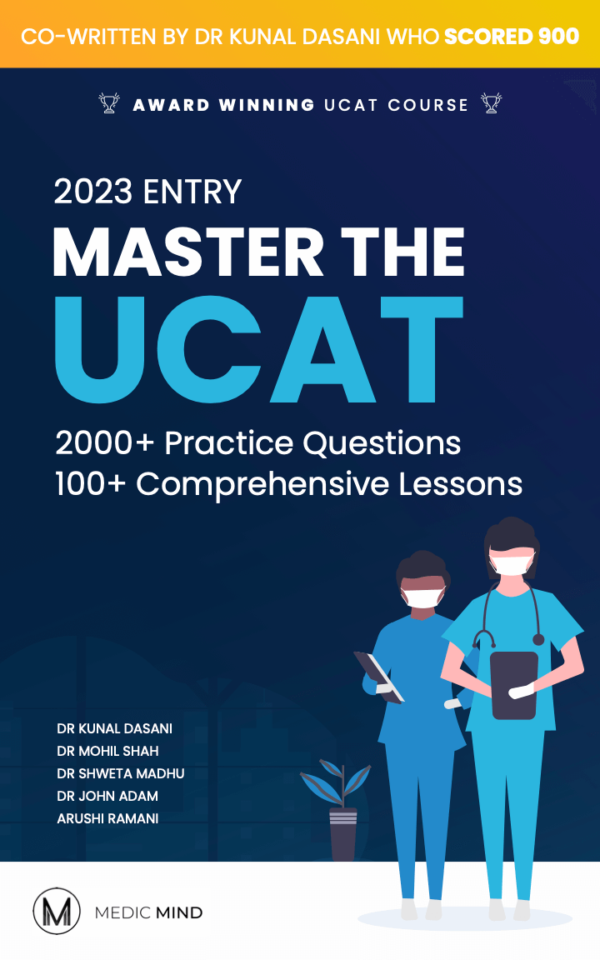Loading...

UCAT Situational Judgement: 6 Tips For UCAT Success
The Situational Judgement is the final section of the UCAT. It looks at how you would react in certain clinical or professional settings. Despite being the last section, and arguably the least time pressured, do not think that it is any less important. You need to make sure that you do not neglect it. These seven tips will help you to succeed with your preparation.
1. Do Not Neglect The Situational Judgement
As mentioned at the start, being the last section some students neglect this section.
It is important to note that some universities look at Situational Judgement more than others. For some universities, your application will not be considered if you have a poor score but apart from this the section is not considered. Other universities will put a greater emphasis on Situational Judgement by using it as part of the MMI interview process. Make sure to research your chosen universities and find out just how much it is taken into account.
Regardless of how much your chosen Universities consider the SJ section, it is critical that you do not neglect studying for it. As scoring highly in this section will keep as many options as possible open to you when applying.
2. Search For Resources Carefully
Situational Judgement tests are used throughout medical careers. For example, at University, during Foundation Years and even when you specialise. Therefore, type in ‘Situational Judgement UCAT’ if you’re looking for the best questions. There is so much out there, you what to make sure the ones you are doing are appropriate, as you don’t want to end up doing a Cardiology Speciality test!
Our blogs on UCAT resources and UCAT books will help point you in the right direction for some of the best resource
3. When revising make sure to read explanations properly
It is important to understand the reason why the answer is what it is. This is the case even if you got it right. If a book or question bank doesn’t give good explanations for the questions, then it may be an inadequate resource to prepare you.
If you continue to struggle with explanations, then you may benefit from some one-to-one tuition.
4. Prepare For The Full Length Of The Test
Many students fade during the Situational Judgement section. They have prepared hard for the others and have expended all their energy answering those questions. This impacts there score in the final section as they run out of steam right at the end.

You need to make sure that this does not happen to you on test day. To avoid this make sure you practise mocks that are the full length of the UCAT, so you will have the stamina to get you all the way through on test day. And remember if you get extra time in the test be sure to add this on to your practise.
5. Situational Judgement: Timing Tip
This section is the least time pressured. Therefore, make sure you read each question carefully and are not missing any key details. Do not rush your answers but think carefully. But equally, do not become complaisant – the test is not finished yet.

Once again this reiterates why it is so important not to neglect this section of the test. Practicing and preparing for it will allow you to find a rhythm when answering the questions. And by knowing roughly how long it takes you to answer a question, you will know on test day if you answering too slowly or too quickly.
6. Situational Judgement: Do Not Be Too Indecisive
Sometimes students deliberate too much in Situational Judgement and go back and forth between answer options. You will get a half mark just for getting the right side (a/b or c/d). This does not mean that you should rush, but try not to spend too long deciding between a or b for example.
Practice is something that will help significantly if this is something that you struggle with. It will allow you to get used to the question types and understand the ethics behind the questions. Once you are familiar with both of these things you will be able to move through the questions confidently and efficiently.
Summary
Situational Judgement is the final hurdle for the UCAT. Make sure you have practised it and have enough left in the tank to get you over it. This is not the part of the test you want to let yourself down on. As you have done arguably the four hardest parts. You just need to think clearly, and have approached your preparation methodically so as ensure that you score well.
FAQs
The UCAT Situational Judgement test is a component of the UCAT (University Clinical Aptitude Test) used by universities in the UK and Australia for admission to medical and dental programs. It assesses a candidate’s ability to make appropriate judgments in various scenarios that might be encountered in the medical or dental profession.
To prepare for the test, practice with sample questions and review ethical principles and guidelines. It can also be helpful to read about real-life scenarios and how professionals have handled them.
Tips for success include reading and understanding the scenarios thoroughly, considering all possible options before making a judgment, using logic and reasoning to make decisions, keeping in mind ethical principles and guidelines, and practicing with sample questions.
The UCAT Situational Judgement test is scored on a scale from Band 1 (lowest) to Band 4 (highest). Candidates receive a percentile rank based on their Band score, which indicates how they performed relative to other candidates who took the UCAT.
Common mistakes include jumping to conclusions without considering all options, letting personal biases or emotions affect judgments, and not considering the long-term consequences of decisions.
The UCAT Situational Judgement test is an important component of the UCAT and is weighted equally with the other sections. A strong score in this test can help improve overall UCAT scores and increase chances of admission to medical or dental programs.
Related
Related Articles
Related links
Personalised lessons and regular progress updates to support you in acing the UCAT
With over 1000 questions, mock paper walkthroughs, timing tips, and more!
Live day, packed full of UCAT advice and tips from the experts. Taking you through all UCAT sections with worked examples






Was this article helpful?
Still got a question? Leave a comment
Leave a comment
1030 Comments
WymSkPhNMedic Mind Tutor
27 September 2023
1